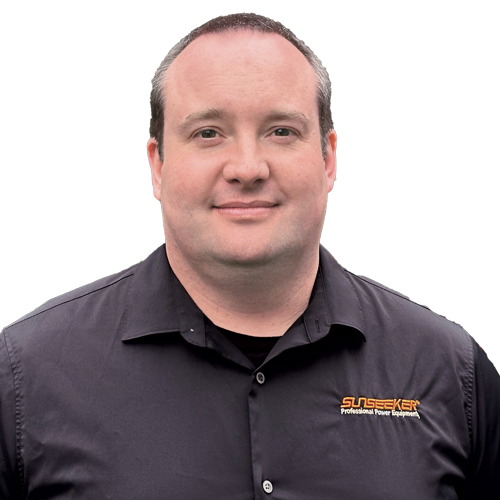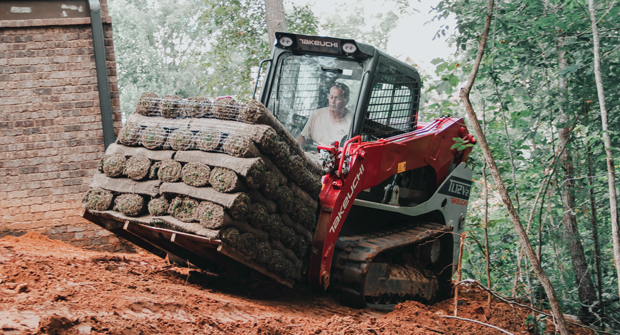Do you remember your first date and the nerves, anticipation and awkwardness of not knowing what to talk about that came with it?

For those in the green industry, an equipment demo might bring up similar feelings. According to Lee Padgett, product manager for Takeuchi-US, the most common mistakes made during a demo aren’t too far off from ones you may have made during that first date.
“The most common mistake we see is simply not asking enough questions or the right questions,” he says.
Matt Moore, director of robotics sales for Sunseeker, agrees, adding there’s never a situation in which you’re going to ask too many questions. While his expertise comes in demonstrating robotic mowers for Sunseeker and others in the robotics market, his advice is still relevant for other equipment purchases like mowers or compact equipment.
“Keep (the equipment) in spec,” he says. “Make sure that you understand the site that it is going to be working on. Does it have a lot of hills? Does it have uneven surfaces? Landscapers really need to know the property they want to put the product on (before making a purchase).”
Know your role
Moore says that the biggest thing a contractor should aim to find out during an equipment trial is what the product can and can’t do.

“Over the years, I’ve done countless demos with robotic mowers, and typically it always comes back to realizing the realm of which the product operates,” says Moore. “A lot of times with a zero-turn turn or a ride-on (mower) or anything like that in the normal landscape portfolio, it’s designed to do X and a lot of times (the contractor) will push to do Y and Z.”
To find out exactly what “X” is, Moore says landscapers should have a few questions in mind, including how big the cutting area is, how the mower communicates and what the limitations of that mode of communication may be.
“Every mower company has an app, but how it communicates is very important,” he says. “Some have 4G cards on them where they’re connected through cellular. So, if you have a property that has no cell service, then your machine’s not going to communicate.”
Another way to make sure you know the limitations of the machine is to put it to work in an environment similar to where you foresee using it, Padgett says.
“Getting some hands-on time with the machine is great, and it’s even better if you can demo the equipment by using it for your specific application,” he says.
In addition to knowing what you need the machine for now, he adds that it’s helpful to have an idea of what you might use it for in the future.
“Ask if the machine is the right one for your (current) application,” says Padgett. “Find out if it has the (rated operating capacity) you need, the bucket breakout and lift arm forces you need and the hydraulic pressure and flow to run the attachments you want to use now and in the future.”
Know your audience
It’s also important to understand your clientele and their expectations before you schedule a demo for any machine, robotic mowers included.
“When you look at a commercial setting or a landscape professional that does residential, you need to understand the availability of time for the machine to work,” Moore says. “If you’re doing a park, you’re typically not going to want it to run during the day when people are out there laying out, having picnics and stuff like that. So, you’re going to be limited on the hours when you can operate.”
Specifically for robotic mowers, the same is true for residential sites, according to Moore. He says there’s a wide spectrum of when homeowners want their mowers to run. Some want to actually see the machine cutting regularly, while others never want to see it.
For larger machines like ride-on mowers or compact construction equipment, operator comfort is another important piece of the puzzle you discover by getting hands-on during a demo.
“A comfortable operator is a productive operator. Consider the size of the operator’s area, how it’s appointed and designed,” says Padgett.
Know your budget
Heading into your demo, it’s important to know what your budget is for an upcoming purchase. Moore says that will be one of the first questions asked of you.
“It’s important to understand what your budget is before you get really deep into it,” he says. “If your budget is $500, then there might be a product out there. It just might not live up to the expectations that you have.”


